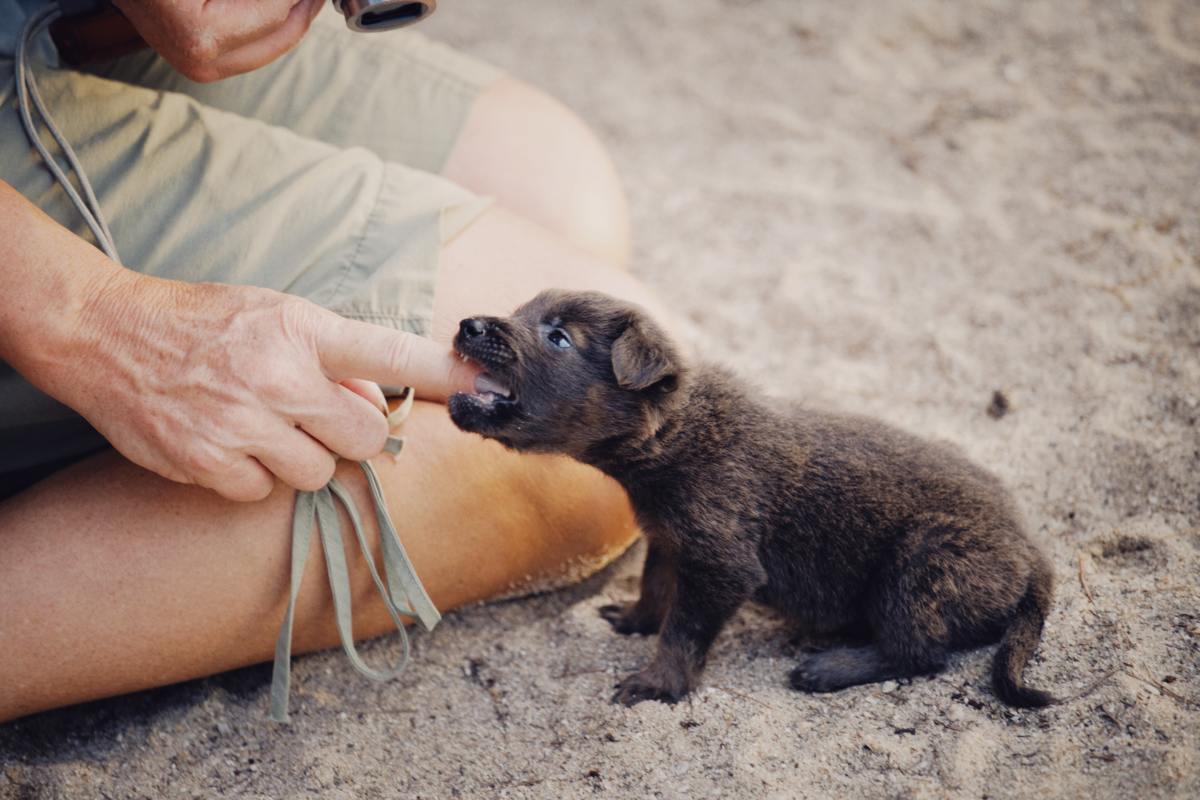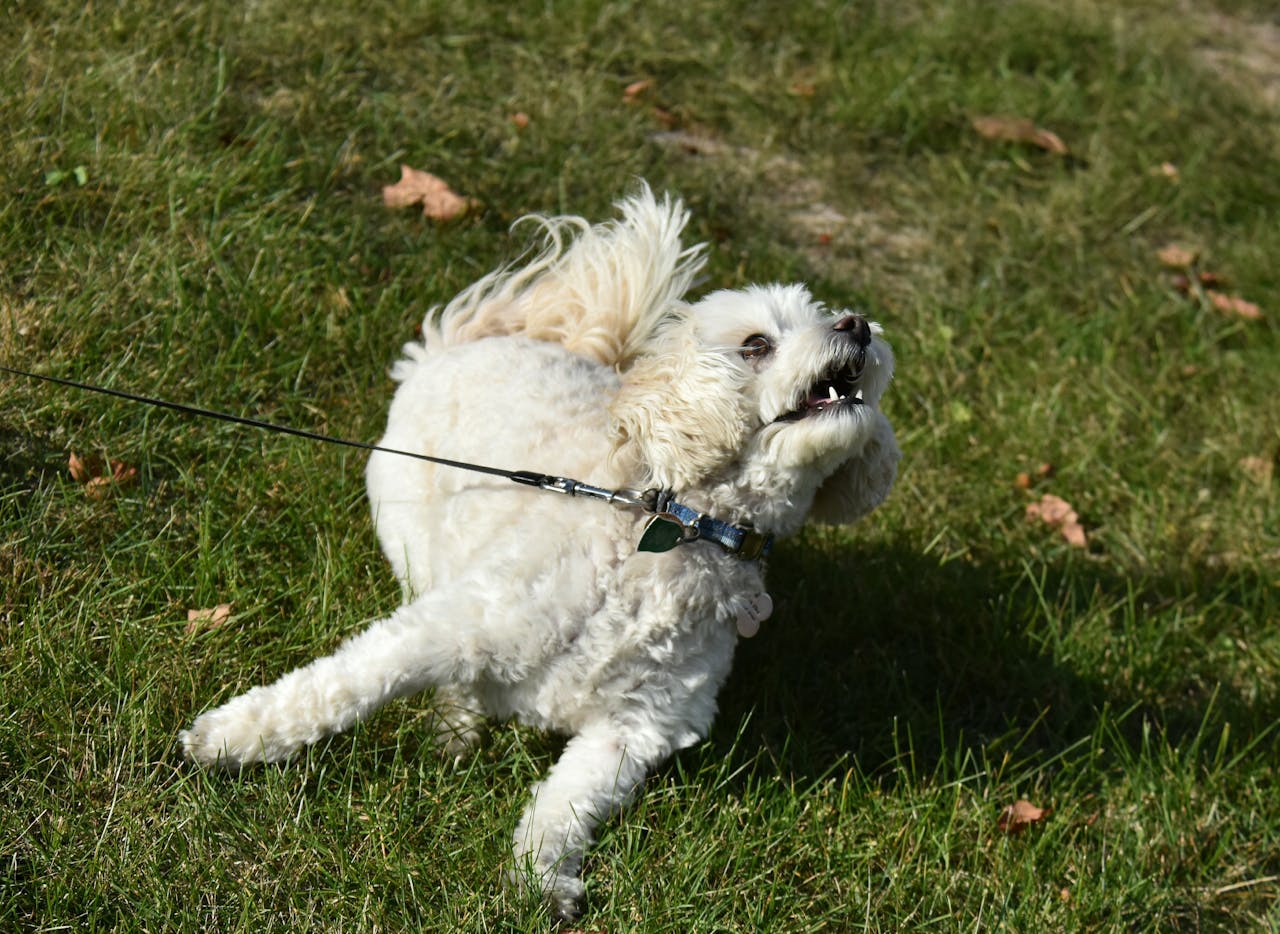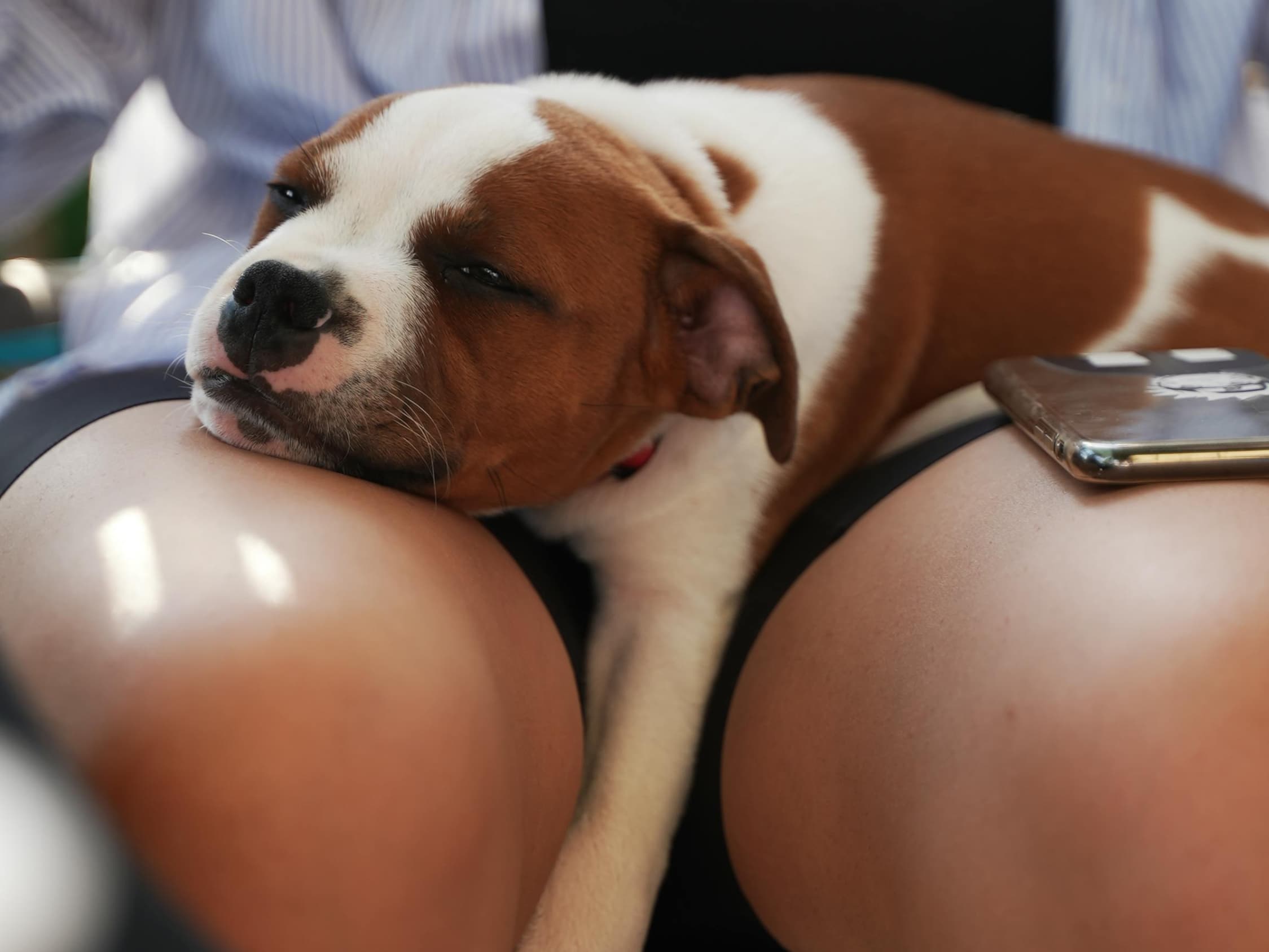Do you have a puppy that bites you all the time? Are you looking for a way to stop this annoying and painful behavior (and feel you’ve tried just about everything)? The good news is you can stop searching for answers now, because here’s the solution: you need to revert back to basic, proven methods. Using this concept, in the paragraphs that follow, I’ll share some tips and tricks that helped many people teach their pups not to bite them. I’ll also show you how to accomplish the same thing! So, if you’re thinking, “My puppy won’t stop biting me, I’ve tried everything!“, read on!
Why Does My Puppy Keep Biting Me?
Before we get into how to stop puppy biting, let’s first understand why they do it in the first place. It’s helpful to realize that biting is a natural and normal behavior, and it plays a vital role in puppies’ development. Experts believe that puppies nip at us for three main reasons: to explore, to play, and when they are teething.
Exploring the World
They are so curious and eager to learn about their surroundings in these early days. Puppies use their mouths to chew and taste different things. That’s why they might bite other puppies, their owners, and other objects. This way, they get sensory feedback about how hard they can bite, what the object feels and tastes like, and whether they like it or not.
Play Behavior
Playing and having fun are important for puppies’ development! But while they do, they may nip or gnaw your hands, feet, or clothing because. And that’s only because they want your attention and invite you to play. To express their excitement and energy, they may also bite each other, too.
Through this playful biting, they learn a valuable skill: bite inhibition. This term means they learn how to control the force of their bite and the consequences of biting too hard.
Teething
Puppies undergo a teething phase when their adult teeth emerge. This usually happens between 12 and 16 weeks of age. During this time, their gums may feel sore and itchy. It’s only natural that biting can help them soothe some of that discomfort and ease the transition to their replacement teeth.

The 5 Best Methods to Train Your Puppy Not to Bite
OK, so puppies bite naturally, but it can also be uncomfortable and annoying, right? So, what do we need to do about it? The best solution is to follow these bite-inhibition training methods that experts use to stop this behavior and get quick results!
1. Use a High-Pitched Sound
Puppies learn how to control their bite force from their mothers and littermates. So, when your dog bites you hard, you should make a loud yelp or squeal sound to let them know it hurts. This imitates exactly what their mother or littermates would do if they bit them too hard, and it gets the message across really quickly.
As a result, your puppy should startle and release its grip. Then you can praise them for letting go and give them a treat or a toy. This will help them associate pleasant mouthing with positive outcomes, and tell them they did a good thing.
2. End the Game
Playfulness and curiosity make puppies bite, but they have to learn that biting isn’t acceptable. If your pup bites you while playing, you need to get the message across (nicely) that playtime is over. Here’s how to do it:
- Turn around and tuck your hands into your armpits or walk away from them.
- Ignore them for a few seconds or until they calm down.
These actions will teach them that biting means they lose your attention and the fun stops. Do this consistently, and they will learn to control their biting really fast!
3. Give Them an Alternative
Young dogs still need to chew something, especially when teething. But instead of allowing your dog to bite your hands or feet, why not give them something else to gnaw on? This item could be a toy, a bone, or a chew stick.
Chewing something will redirect their biting behavior to something more appropriate and satisfy their needs. Please ensure the items are safe and durable enough for a puppy.
Why not give the Kong Puppy Toy a try? For teething pups, this soft, natural rubber toy helps to relieve gum pain and swelling in the mouth, especially if you pop it in the freezer for a while beforehand. They will enjoy playing with it and find it exciting, and experts like the American Kennel Club recommend this particular toy as a distraction while teething. Your puppy will become exhausted and feel more at ease and sleepy!

4. Use Positive Reinforcement
Ask any reputable dog trainer, and they’ll tell you that all dogs respond well to positive reinforcement (which means rewarding them for exemplary behavior). For example, reward your puppy for:
- Licking your hand instead of biting it
- Playing with their toys instead of your shoes
- Sitting calmly instead of jumping on you
You can use treats, praise, petting, or playing as rewards. Doing this will encourage a repetition of positive behavior and a reduction of nipping.
5. Socialize Your Puppy
One of the most effective ways to teach a puppy bite inhibition is to expose them to other dogs and people safely and positively. You see, the importance of dog socialization lies in the fact that it teaches them how to interact properly with others and control their impulses. The key things to know are:
- Make sure the other dogs are friendly and vaccinated
- Supervise the interactions closely
- If the dogs play too roughly or bite too hard, intervene and separate them until they calm down
Why not enroll your puppy in a socialization class? They can learn a lot from other puppies and trainers!

If You’ve Tried Everything and Nothing Works
Don’t expect your pup to stop biting you overnight. It’s a natural behavior that they need to learn to modify, which takes time. Some puppies learn faster than others. Much depends on their personality, breed, and environment.
So, you’ll need to be patient and persistent with your training. It might be tough, but please don’t lose your temper or give up if your dog makes mistakes. The following tips can help:
Follow the Same Rules
Here’s a helpful tip: check that everyone in your household is on the same page. For example, if one person lets the puppy bite them or plays roughly with them, it will confuse the animal and make training harder. For this reason, everyone should adopt the same commands, signals, rewards, and consequences.
Prevent Biting Situations
Try to avoid situations that trigger your puppy’s behavior. For example, if you know they get nippy when they’re hungry, tired, bored, or overexcited, feed them, you could be proactive and play with them, or put them in a timeout first. If you notice the urge to gnaw or bite (like growling, snarling, or lunging), redirect their attention to a toy or a treat.
Reward Good Behavior
It’s best to focus on reinforcing good behavior, rather than punishing bad behavior. Studies show that positive reinforcement is far more effective and humane than punishment. You want to praise your puppy when they lick, nibble, or chew on appropriate items, and try ignoring them when they bite. Please avoid yelling at, hitting, or scaring them, as this can make them more fearful or aggressive.
When to Seek Professional Help
If continued biting behavior is causing injury or distress, you may need to seek professional help from a vet or a dog trainer. They’ll be able to evaluate your dog’s health and behavior, and give you personalized advice and guidance. They can also rule out any medical or behavioral issues that may be contributing to the problem.
Final Thoughts
When you feel you’ve tried everything, you can stop your puppy from biting you or anyone else using the primary, proven methods outlined above. With some patience, guidance, and encouragement, your pup will learn to use their mouths more gently and respectfully. Besides correcting their behavior, you’ll also improve your relationship – and have more fun! Let us know in the comments below which technique or techniques worked best for you!
Sources and Further Reading
- Stop Puppy Biting Use Discipline, Distraction, Commands Chew Toys | Dog’s Best Life
Work with your dog and use simple tips to stop a puppy from biting: discipline, distraction, firm commands, and no rough play. - Puppy Biting: Why Do Puppies Bite and How Can You Stop It? | PetMD
Is your new puppy’s biting getting a bit out of control? Here’s veterinary behaviorist Wailani Sung’s insight into why puppies bite and what you can do about it. - How to Stop Puppy Biting and Train Bite Inhibition | American Kennel Club
Puppy biting can become a problem behavior if not nipped in the bud. Teaching bite inhibition, offering chew toys, and training are all ways to curb biting.




